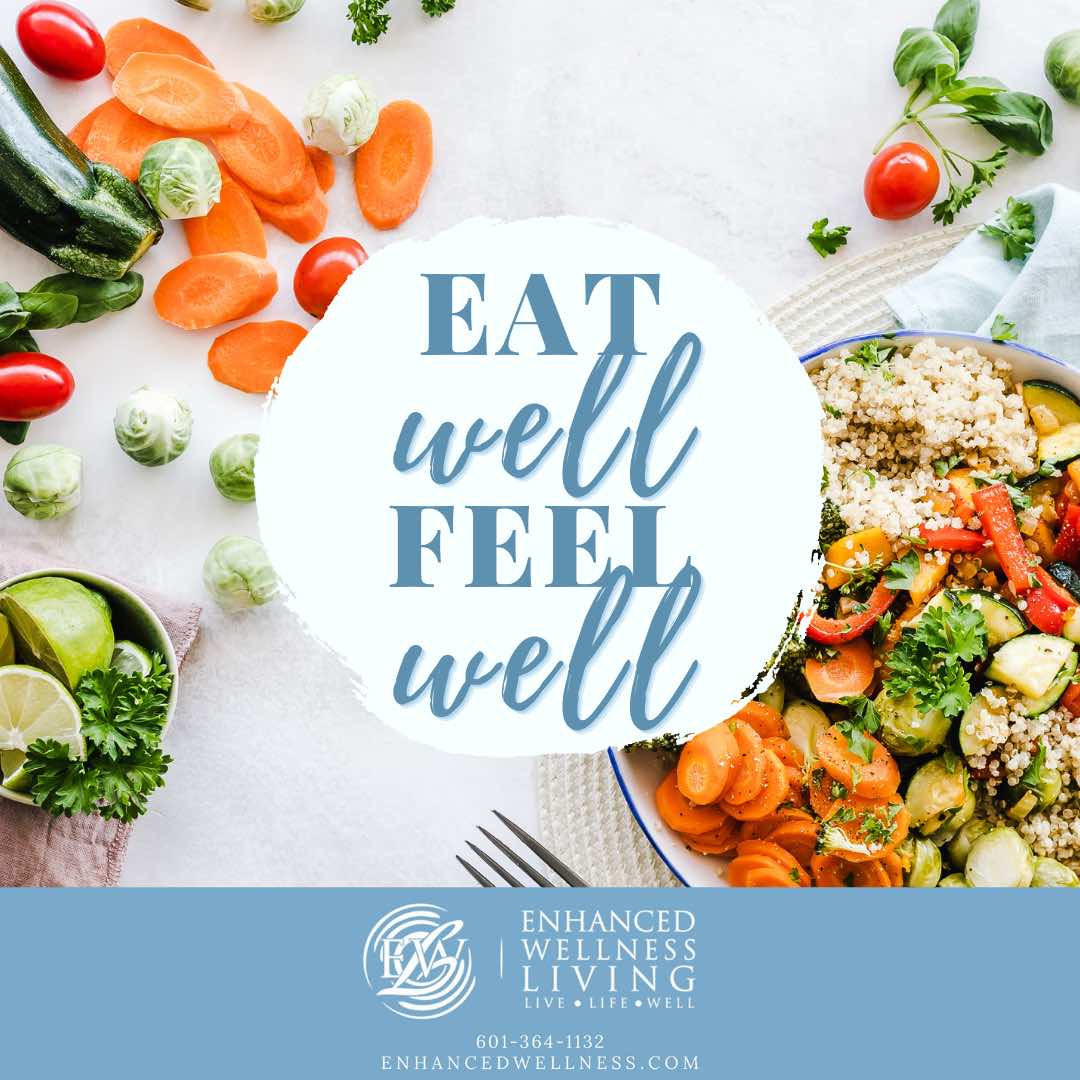Living a healthier lifestyle doesn’t need to break the bank. At Enhanced Wellness Living, our clinic for functional medicine in Ridgeland, MS, we meet many patients who want to prioritize their health but feel overwhelmed by the costs of eating clean, purchasing quality supplements, and completing recommended lab work. The good news is that with the right approach, you can experience the benefits of a Paleo lifestyle, smart supplementation, and functional medicine testing while staying within a reasonable budget.
This article provides a comprehensive guide to budgeting for wellness where we’ll explore cost-saving strategies in three key areas:
- The Paleo Diet – eating nutrient-dense, whole foods affordably.
- Supplements – knowing when and where to spend wisely.
- Functional Medicine Labs – prioritizing and planning for the most important tests.
Whether you are just starting your wellness journey in Ridgeland, MS, or looking for ways to cut back on expenses without sacrificing results, these strategies will help you feel empowered and in control.
Why Budgeting Matters in Functional Medicine
Functional medicine focuses on identifying root causes of health issues and using personalized nutrition, lifestyle, and targeted supplementation to restore balance. While effective, the process can feel expensive at first. Organic groceries, high-quality supplements, and specialty labs all carry a price tag.
Budgeting for wellness ensures that you:
- Stay consistent with your health plan.
- Reduce financial stress (which is itself a root cause of health issues).
- Maximize results by spending money where it counts most.
Think of it as strategic investing in your health—allocating resources toward the choices that bring the highest return in energy, longevity, and vitality. At Enhanced Wellness Living, an integrative health clinic in Ridgeland, MS, we guide patients to make sustainable changes that fit their lifestyle and financial reality.

Part 1: Budgeting for the Paleo Diet
The Paleo diet emphasizes whole, unprocessed foods that our ancestors would have eaten: meats, fish, vegetables, fruits, nuts, seeds, and healthy fats. Many patients assume this way of eating must be expensive, especially when they hear terms like “grass-fed” and “organic.” But in reality, there are many frugal strategies to eat Paleo on a budget.
1. Prioritize Food Quality Strategically
Not every item on your grocery list needs to be organic or grass-fed. Focus your budget on the highest-impact foods:
- Animal proteins: If you can’t afford grass-fed beef all the time, rotate in conventional cuts and choose organic or pastured for foods you eat most often.
- The Dirty Dozen: Buy organic for produce on the Environmental Working Group’s “Dirty Dozen” list like strawberries, spinach, and apples. Save money with conventional produce on the “Clean Fifteen.”
- Eggs: Pasture-raised eggs give you a nutritional bang for your buck—rich in omega-3s and vitamins.
2. Buy in Bulk and Freeze
- Purchase larger cuts of meat, like whole chickens or roasts, which cost less per pound.
- Freeze portions in meal-sized packs to avoid waste.
- Consider warehouse clubs or online bulk meat suppliers—splitting orders with friends or family reduces costs further.
3. Choose Affordable Protein Sources
- Canned salmon, sardines, and mackerel are inexpensive, nutrient-dense, and Paleo-friendly.
- Ground beef or turkey is cheaper than steaks or chicken breasts but just as versatile.
- Organ meats like liver are extremely cost-effective and nutrient-rich and can be mixed into ground meats.
4. Embrace Seasonal and Local Produce
Buying produce in season often costs half as much as out-of-season imports. Farmers’ markets near closing time sometimes offer deep discounts on bulk purchases. Community-supported agriculture (CSA) boxes are another frugal way to access organic produce.
5. Cook at Home, Batch Cook, and Minimize Waste
Eating out, even at “healthy” restaurants, drains the budget quickly. Preparing meals at home ensures ingredient quality and stretches your dollars. Batch cooking soups, stews, and casseroles can provide 2–3 meals from one cooking session. Save scraps like vegetable ends and bones to make your own broths.
6. Simplify Snacks
Instead of expensive Paleo snack bars, make your own trail mix, hard-boiled eggs, or veggie sticks with guacamole. Small changes like this can save $20–$50 per week.
Budget tip: With meal planning, bulk buying, and prioritizing organic where it matters most, a family can eat Paleo for as little as $10-$15 per person per day.
At Enhanced Wellness Living in Ridgeland, MS, we emphasize a food-first approach to health because real food creates the foundation for healing and is often more cost-effective in the long run.
Part 2: Frugal Supplementation Strategies
Supplements can be powerful tools in functional medicine—but costs add up quickly if you’re not strategic. The supplement industry is full of hype, and not every bottle is necessary or high quality. Here’s how to approach supplementation without overspending.
1. Start with Food First
The Paleo diet already provides a nutrient-dense foundation. Focus on whole foods before leaning on supplements. For example:
- Bone broth for minerals and collagen.
- Fatty fish for omega-3s.
- Sunlight and mushrooms for vitamin D.
This aligns with our clinic’s food-first approach to health in Ridgeland, MS, ensuring you get maximum nourishment from meals before investing in additional products.
2. Personalize Your Supplements
One common mistake is buying a long list of supplements based on internet articles rather than personalized needs. Our functional medicine providers recommend only what supports your specific health goals, saving you money on unnecessary products.
Rule of thumb: If you don’t know why you’re taking it, you probably don’t need it.
3. Prioritize Foundational Supplements
For most people, the highest-yield supplements include:
- Vitamin D + K2 – especially in colder climates.
- Omega-3 fish oil – if you’re not regularly eating fatty fish.
- Magnesium – a common deficiency affecting sleep, stress, and energy.
- Probiotic or fermented foods – depending on digestive health.
Start small, focus on quality, and only add more when guided by your practitioner to do so because of lab results, symptoms, or goals.
4. Buy Smart
- Skip retail markups: Purchase directly through Enhanced Wellness Living’s online supplementation form and keep an eye out for our clinic’s supplement sales! .
- Check for third-party testing: Ensures potency and purity, so you aren’t wasting money on ineffective products. At Enhanced Wellness Living, every product we recommend to patients is third-party tested.
5. Track and Rotate
Not every supplement is meant for long-term use. Track how you feel and rotate off when appropriate with the guidance of your practitioner. For example, gut repair protocols often involve higher supplementation at the beginning but taper off as healing occurs.
Budget tip: A well-designed supplement plan can save you money in the long run!
Part 3: Budgeting for Functional Medicine Labs
Lab testing is one of the most valuable tools in functional medicine. It allows us to move beyond guesswork and tailor interventions to your body’s unique needs. However, labs can be one of the biggest expenses, but strategic planning makes them manageable.
1. Prioritize Testing
Not every lab needs to be run at the start. Begin with the tests that will provide the clearest insights for your symptoms or health goals according to your practitioner. Common foundational labs may include the following:
- Comprehensive blood panel (CBC, metabolic panel, thyroid markers).
- Vitamin D, iron, and B12 levels.
- Inflammation markers like CRP.
Once these are reviewed, your provider can determine whether deeper specialty testing (such as GI mapping, hormone panels, or food sensitivity, to name a few) is necessary.
2. Space Out Testing
Instead of running all labs at once, spread them out over months or even a year. This eases the financial burden while still giving you actionable data.
3. Use Insurance Where Possible
Some standard labs (like cholesterol, thyroid, or vitamin D) are often covered by insurance if ordered through your primary care provider. Save your functional medicine budget for specialty labs that aren’t typically covered as functional medicine is usually out of pocket.
4. Watch for Packages and Discounts
Some labs offer bundled panels at a reduced price. At Enhanced Wellness Living, we also provide membership programs that offer discounts on testing during your birthday month and other special times throughout the year.
5. Re-Test Strategically
Re-testing is important to track progress, but it doesn’t always need to be done frequently. Many labs only require re-testing every 6–12 months. Get with your practitioner on this for the best advice on moving forward.
Budget tip: By prioritizing foundational labs and spacing out specialty testing, patients often can work on their health little by little making lasting, long-term changes.

Pulling It All Together: A Frugal Wellness Roadmap
Here’s how a patient might structure their first year of a wellness journey on a budget:
Month 1–3: Foundations
- Transition to Paleo diet with smart shopping strategies.
- Start foundational supplements (vitamin D, magnesium, omega-3).
- Complete initial basic labs (CBC, thyroid, vitamin D).
Month 4–6: Build Momentum
- Explore bulk buying and seasonal produce to lower food costs further.
- Add targeted supplements based on symptoms/labs.
- Space out specialty testing if needed.
Month 7–12: Optimize and Reassess
- Re-test essential labs to track progress.
- Fine-tune supplementation, dropping what’s no longer needed.
- Continue budget-friendly Paleo meal prep and bulk buying.
By the end of the year, most patients experience better energy, digestion, sleep, and weight balance.
Your health is one of the best investments you can make. With a mindful approach, you don’t need to choose between financial stability and functional medicine. By applying frugal strategies to the Paleo diet, supplementation, and lab testing, you can achieve lasting wellness while staying within your means.
At Enhanced Wellness Living, at our clinic for integrative health in Ridgeland, MS, we specialize in helping patients design personalized wellness plans to fit your budget. If you’d like guidance on prioritizing your next steps, reach out—we’re here to walk this journey with you using a food-first approach to health in Ridgeland, MS. Please fill out our Get Started Today form, get acquainted with our clinic as a new patient, or call us at 601-364-1132. We look forward to helping you Live Life Well!
Enhanced Wellness Living of Ridgeland, Mississippi is your leading Functional Medicine, Holistic Health, Lifestyle Medicine, and Integrative Medicine clinic! Nurse Practitioner, Kelly Engelmann, and the Enhanced Wellness Living team have supported all of Mississippi including Ridgeland, Jackson, Madison, Brandon, Hernando, Starkville, Flowood, Vicksburg, Oxford, Olive Branch, the Mississippi Gulf, Cleveland, Clinton, Hattiesburg, Canton, Bolton, Hinds, and more since 2004!
*These statements have not been evaluated by the Food and Drug Administration. These products are not intended to diagnose, treat, or cure any disease.



